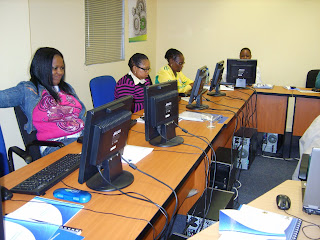Digital Literacy A New Path To Skills Development
Research has demonstrated that the differences in the level of digital literacy depend mainly on age and education level, while the influence of gender is decreasing(Hargittai, 2002; van Dijk, 2005; van Dijk and van Deursen, 2009). Among young people, in particular, digital literacy is high in its operational dimension (e.g. rapidly move through hypertext, familiarity with different kinds of online resources) while the skills to critically evaluate content found online show a deficit (Gui and Argentin, 2011).
These communities can have a great literacy impact on the members in terms of sharing and accessing informative materials and resources especially on students, academicians and ardent readers or learners. The communities are helpful to a large extent for providing digital literacy to the members. In recent years, information and digital literacy have been regarded as the most important resources provided by such communities, through various educational programs, summer trainings and different learning initiatives like book fest etc.
Choose the latter, and it could be the last real choice you get to make." Rushkoff provides cyber-enthusiasts and technophobes alike with the guidelines to navigate this new universe. In this spirited, accessible poetics of new media, Rushkoff picks up where Marshall McLuhan left off, helping users to come to recognize programming as the new literacy of the digital age-and as a template through which to see beyond social conventions and power structures that have vexed us for centuries.
Veterans were absolutely correct.
We, the baby boomer generation, that grew up working with typewriters, telephones, scooters and cars to commute to work have had difficult time to cope with the changing lifestyle, ditto our predecessors. Technology may open doors, but can't force people to walk through them. The fear of computers-the Cyber phobia---developed due to the lack of technological literacy is an intense and persistent fear of being around. The baby boomer generation is kind of Luddites, wary of new technology.
We prefer a low-tech approach to living our lives. Many of us fear cell phones, Blackberries, and other new and modern gadgets, such as iPods and other MP3 players. Use of computers may be real deterrent to our careers, communication, and even relationships. We often report feelings of longing for the "good old days", when computers were not an important facet of workplaces, social networking, and other such things.
With Bill Gate's microprocessors having become an in-thing it happened to catch my (my teenage son's as well) fancy, nearly a decade and half back, to be a pride owner. It was as if the ownership would bestow me with the honor of one-upmanship relatives and friends (with little or no computer savvy) and then guests admiring and thinking high of the gizmo ( & me) for adorning the small library at my home. Despite wife voting nay and opposing tooth and nail, was made.
The kids, particularly my teenage son, were on top of world, on cloud nine. The techie came to install the apparatus. He taught tidbits, which my kids alone could comprehend and remember. In their frenzy to get a hold onto the system, click on â€~Delete key' or the like, by the warring parties, would send it packing into digital darkness. Nobody would own the responsibility. Dilly dallying, I would make obligatory rounds of the much-sought-after techie to reset and reboot the system. The upshot; I would pay through my nose, for my dear kid's misadventure.
As if it were a God given opportunity, wife, who never reconciled with the idea of owning computer, would nag the poor â€~me' for the poor performance of children in school exams and pour scorn for the misadventure of the computer-spend. Curfew kind of restrictions that followed meant that for some days nobody dared touch the system let alone talk about it. Keys of the room seized, the Iron Lady would hide them without leaving a trail behind. For the Gen-x kids are weaned on the iPods and high tech video games, it makes them freedom minded, individualistic, and self-absorbed.
For children information produced and disseminated online behaves differently from physical books, magazines and newspapers. Smart phones that children use are already a sort of personal, always- connected-computers in their pockets. They use them for games, as maps, to listen to music or to take and share pictures. The idea of using them as wallets, keys, even identification or to serve as our personal documents is starting to happen now and how these services develop in the future is only limited by our imagination. The availability of life-changing technology at competitive prices is apt to redefine Digital Lifestyle. Digital Divide now takes into consideration access, or lack of access, to the Internet, as well. I may be computer savvy, at least to the extent of visiting Net or scribbling a page or two, but then I make no bones to admit that treading into a (NetGen) domain where Luddites can't dare, is certainly not the kind of my cup of tea..
These communities can have a great literacy impact on the members in terms of sharing and accessing informative materials and resources especially on students, academicians and ardent readers or learners. The communities are helpful to a large extent for providing digital literacy to the members. In recent years, information and digital literacy have been regarded as the most important resources provided by such communities, through various educational programs, summer trainings and different learning initiatives like book fest etc.
Choose the latter, and it could be the last real choice you get to make." Rushkoff provides cyber-enthusiasts and technophobes alike with the guidelines to navigate this new universe. In this spirited, accessible poetics of new media, Rushkoff picks up where Marshall McLuhan left off, helping users to come to recognize programming as the new literacy of the digital age-and as a template through which to see beyond social conventions and power structures that have vexed us for centuries.
Veterans were absolutely correct.
We, the baby boomer generation, that grew up working with typewriters, telephones, scooters and cars to commute to work have had difficult time to cope with the changing lifestyle, ditto our predecessors. Technology may open doors, but can't force people to walk through them. The fear of computers-the Cyber phobia---developed due to the lack of technological literacy is an intense and persistent fear of being around. The baby boomer generation is kind of Luddites, wary of new technology.
We prefer a low-tech approach to living our lives. Many of us fear cell phones, Blackberries, and other new and modern gadgets, such as iPods and other MP3 players. Use of computers may be real deterrent to our careers, communication, and even relationships. We often report feelings of longing for the "good old days", when computers were not an important facet of workplaces, social networking, and other such things.
With Bill Gate's microprocessors having become an in-thing it happened to catch my (my teenage son's as well) fancy, nearly a decade and half back, to be a pride owner. It was as if the ownership would bestow me with the honor of one-upmanship relatives and friends (with little or no computer savvy) and then guests admiring and thinking high of the gizmo ( & me) for adorning the small library at my home. Despite wife voting nay and opposing tooth and nail, was made.
The kids, particularly my teenage son, were on top of world, on cloud nine. The techie came to install the apparatus. He taught tidbits, which my kids alone could comprehend and remember. In their frenzy to get a hold onto the system, click on â€~Delete key' or the like, by the warring parties, would send it packing into digital darkness. Nobody would own the responsibility. Dilly dallying, I would make obligatory rounds of the much-sought-after techie to reset and reboot the system. The upshot; I would pay through my nose, for my dear kid's misadventure.
As if it were a God given opportunity, wife, who never reconciled with the idea of owning computer, would nag the poor â€~me' for the poor performance of children in school exams and pour scorn for the misadventure of the computer-spend. Curfew kind of restrictions that followed meant that for some days nobody dared touch the system let alone talk about it. Keys of the room seized, the Iron Lady would hide them without leaving a trail behind. For the Gen-x kids are weaned on the iPods and high tech video games, it makes them freedom minded, individualistic, and self-absorbed.
For children information produced and disseminated online behaves differently from physical books, magazines and newspapers. Smart phones that children use are already a sort of personal, always- connected-computers in their pockets. They use them for games, as maps, to listen to music or to take and share pictures. The idea of using them as wallets, keys, even identification or to serve as our personal documents is starting to happen now and how these services develop in the future is only limited by our imagination. The availability of life-changing technology at competitive prices is apt to redefine Digital Lifestyle. Digital Divide now takes into consideration access, or lack of access, to the Internet, as well. I may be computer savvy, at least to the extent of visiting Net or scribbling a page or two, but then I make no bones to admit that treading into a (NetGen) domain where Luddites can't dare, is certainly not the kind of my cup of tea..





